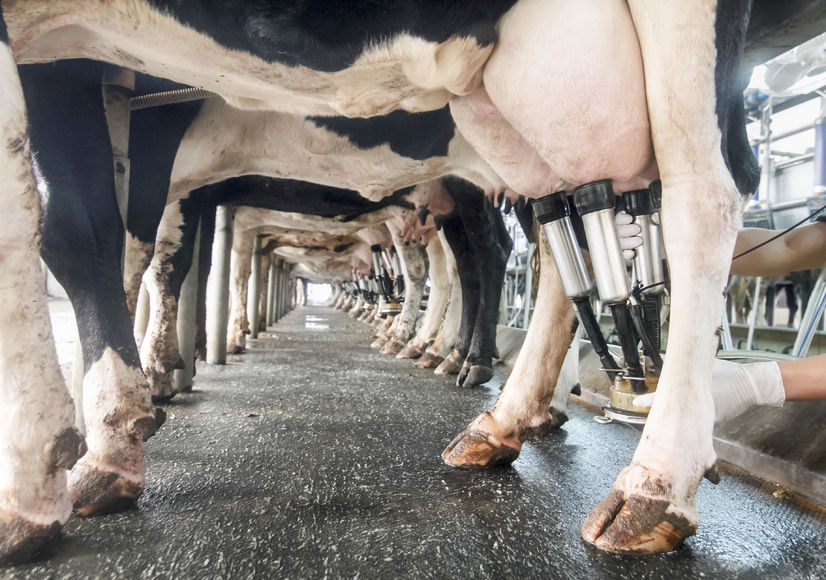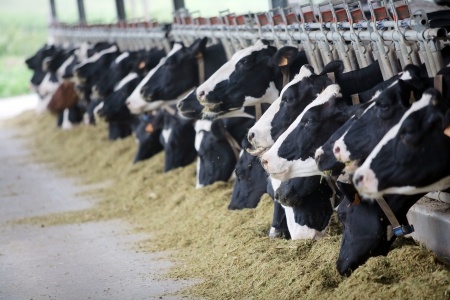
Only 4 per cent of UK adults would consider all key aspects of working on dairy farms personally acceptable, according to a new survey commissioned by the dairy industry.
A YouGov survey commissioned by the Royal Association of British Dairy Farmers (RABDF) casts doubt on whether future restrictions on accessing labour from the EU can be solved by recruiting from the domestic workforce.
The questions established their willingness in the past to consider the acceptability of a number of general working conditions, and whether they would consider them acceptable now.
The survey of over 2,000 people carried out in early June, found that among those who do consider at least one of the features of dairy farming – such as working in a rural location – acceptable, interest appears to diminish when they find out the role is in dairy farming.
Furthermore, a lower percentage of skilled or qualified adults in the UK are likely to consider a job in dairy farming (9%) compared with semi (19%) or low-skilled workers (12%), despite competitive pay.
'Cannot be relied upon'
Mike King, chairman of RABDF, says the survey not only throws light on an image problem with dairy farming, but suggests the domestic workforce cannot currently be relied upon to plug labour shortages.
He explains: “EU workers currently fill a large number of roles in dairy farming, which are varied and largely permanent. But post-Brexit, we could see access to that labour disappear.

“The survey indicates many UK workers simply don’t like the thought of some of the features of dairy farming, like the need for flexible hours or working outside.
“The least popular task is working with machinery – only 17% of all UK adults would consider it acceptable if they were applying for a job now. Just 27% will consider a job involving animals, and working in a rural location is deemed acceptable by only 36%.
“This, coupled with the tail-off in interest when people realise the role is in dairy farming, shows we need to take a long term look at the image we portray but also secure access to the labour we need in the short term.”
'Very different needs'
Mr King says the dairy sector has very different labour needs compared with other farming sectors – such as fresh produce businesses which rely on seasonal unskilled labour from EU countries.
“Even for dairy farms which calve seasonally rather than year-round, labour requirements are relatively static with a big emphasis on skilled or qualified permanent labour to cope with the shift towards precision-based management of animals, forage and land,” he says.
“This is why the results of this survey sound warning bells for dairy farming, especially when considering them in light of UK dairy farmers’ growing reliance on staff from the EU.”
Repeat polls of dairy farmers run by RABDF itself in 2014 and 2016 show the number experiencing difficulty recruiting staff within the previous five years rose from 40% in 2014 to 51% in 2016, and those employing staff from outside the UK in the previous five years increased from 32% to 56%.
'Willingness to work'
In 2016, 93% of dairy farmers polled by the RABDF said the use of EU labour had been a successful option for their farm.
83% of respondents said they employed EU labour due to ‘willingness to work’, and 63% because of insufficient UK staff availability. 60% expected their EU staff to remain for three or more years.
The farmers polled in 2016 also said 50% of their workers were highly skilled or mainly highly skilled in dairy and able to do most of the jobs on a dairy farm; 85% had staff from Poland and 23%, from Romania.
It comes as news that the number of seasonal workers coming to work on British farms has dropped 17%, leaving farms 'critically short' of people to harvest fruit and veg, a survey by the National Farmers' Union shows.
And a recent industry survey by British Summer Fruits showed that prices could soar by 50% if the UK cannot gain access to EU workers after Brexit.
